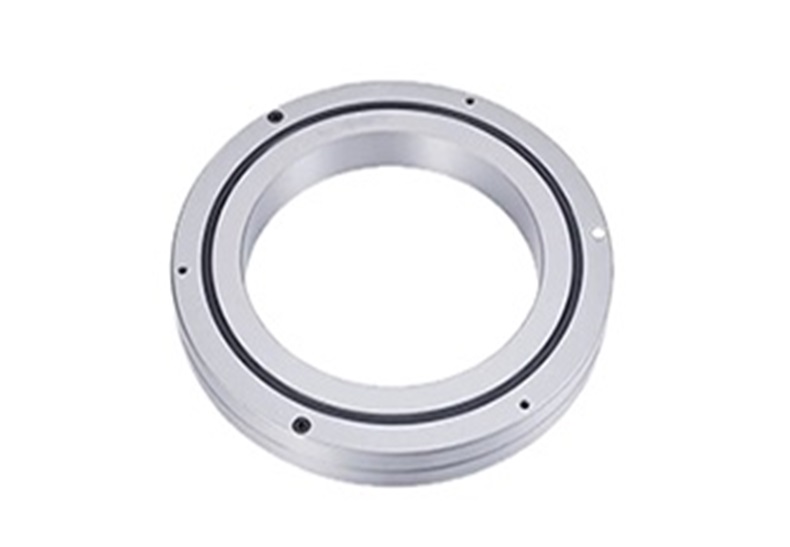Cross roller ring bearings, with their excellent load-bearing capacity and rigidity, are widely used across various fields such as aerospace, robotics, and the machine tool industry. Preload, i.e., the initial load applied during the assembly of the bearing, has a direct impact on the bearing's performance. Correct preload can improve the bearing's rotational accuracy and contact stiffness, whereas improper preload may lead to a decline in bearing performance. This article will detail the impact of preload on the performance of cross roller ring bearings.
Impact of Preload on Rotational Accuracy
Proper preload helps improve the rotational accuracy and contact stiffness of cross roller ring bearings. This is because preload can ensure appropriate contact pressure is maintained during bearing operation, reducing errors due to poor contact, which is especially important for precision machinery and equipment.
Impact of Preload on Service Life
Appropriate preload can extend the service life of crossed roller ring bearings. Preload can enhance the bearing's damping, reduce bearing noise, and compensate for increased clearance after long-term use. However, if the preload is too large, it will increase the transmission resistance of the bearing, leading to greater friction, which in turn causes bearing wear and heating, thereby reducing the bearing's service life.
Impact of Preload on Noise Level
Proper preload can reduce the noise level of the bearing. Preload can reduce internal vibrations of the bearing, thereby lowering noise. An excessively small preload may lead to a decrease in the shaft's support stiffness and the gear meshing accuracy, resulting in abnormal vibrations and noise during bearing operation.
Impact of Preload on Load Capacity
Preload also affects the load capacity of cross roller ring bearing products. Adequate preload can improve the bearing's load capacity since preload can increase the internal contact area of the bearing, thereby enhancing its load capacity. However, if the preload is improperly set, it may affect the bearing's stability and load capacity.
Impact of Preload on Temperature
The size of the preload affects the operating temperature of the bearing. Excessive preload will increase friction, leading to a rise in bearing temperature, which may affect the bearing's performance and longevity. Conversely, adequate preload helps maintain an appropriate operating temperature for the bearing.
The impact factors of preload on the performance of cross roller ring bearings are numerous. Correct preload can enhance rotational accuracy, reduce noise, extend service life, and improve load capacity. However, excessively high or low preload may negatively impact bearing performance. Therefore, for engineering technicians, understanding how to set preload correctly is beneficial for ensuring the good performance of bearings, leading to a better understanding and application of cross roller ring bearings, thereby improving the overall performance and reliability of mechanical equipment.

 English
English
